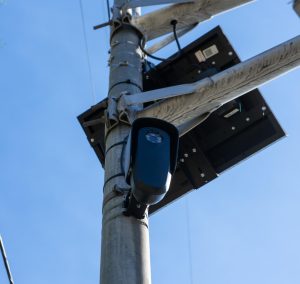Education as Emancipation
September 19, 2017
Shiny red delicious apples, a grainy photograph of Einstein overlaid with multicolored Comic Sans, plastic school desks with fiberboard tops, fluorescent lighting embedded in the ceiling, a chalkboard with wispy half-erased suggestions of calculus. These are the signs and symbols of the American classroom. They are immediately recognizable by virtually everyone in this country and have run so deep that they’ve almost become synonymous with education itself; to be educated is to have spent a good amount of time here, in one of those wobbly seats, taking pop quizzes and asking on-topic questions.
But what, really, is education? Maybe you’d be tempted to follow the OED in defining it as “the process of receiving or giving systematic instruction.” But, then, what about someone who’s received systematic instruction in the armed forces? Most of us are willing to use words like “instructed” or “trained” to describe those who’ve passed through boot camp, but the word “educated” is often reserved for those who’ve had systematic instruction in another subset of the corpus of human knowledge.
So, to be educated isn’t to have been in a school and it’s not just to have received systematic instruction. What else could it be? One answer put forward by the Brazilian educator Paulo Freire is that it is a form of emancipation. To be educated, according to this view, is to be liberated from vessel-hood. It is to no longer be a passive vessel waiting to be filled up with knowledge, but instead an active human being engaged in dangerous and creative acts of cognition. More narrowly and in slogan-form, it’s less about retention and more about invention.
All this is fine and well, you might think, so long as you’re referring to the stuff that happens in that building (pointing to Maxey), but what about all those other apolitical subjects: math, biology, chemistry, physics? Surely the above definition doesn’t apply to professors in these fields. Well, that depends on our particular inclinations. For me, it’s obvious that by labeling those subjects apolitical, the speaker is actually making a political move. Apolitical subjects appear, at first blush, to have a heightened status, as if they transcended the ordinary monotony of civic life, but it is precisely this status that Hegelians and Marxists and other unreservedly political types hope to achieve. To clarify, by labeling science “apolitical,” the speaker is rendering it impervious to political attacks and therefore granting its practitioners heightened political power (if they so choose to use it).
All this is to say that instruction becomes education only when it is imbued with politics (in the broad sense). Before that happens, it’s just passive reception, no different than watching a political debate on TV and memorizing all the positions. Any time, on the other hand, a mathematician claims to have developed a new proof or a scientist claims to have discovered some new quirk of the cosmos they enter the realm of the political. This is where the order imposed by the classroom, with those on-topic questions and pop quizzes, gives way to messy realities.






